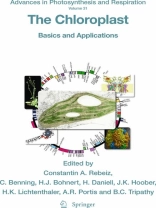As the industrial revolution that has been based on by higher photosynthetic efficiencies and more utilization of fossil fuels nears its end [R. A. Ker biomass production per unit area. (2007) Even oil optimists expect energy demand to According to Times Magazine (April 30, 2007 outstrip supply. Science 317: 437], the next indus- issue), one fifth of the US corn crop is presently trial revolution will most likely need development converted into ethanol, which is considered to burn of alternate sources of clean energy. In addition cleaner than gasoline and to produce less gre- to the development of hydroelectric power, these house gases. In order to meet a target of 35 billion efforts will probably include the conversion of gallons of ethanol produced by the year 2017, the wind, sea wave motion and solar energy [Solar Day entire US corn crop would need to be turned into in the Sun (2007) Business week, October 15, pp fuel. But crops such as corn and sugarcane cannot 69–76] into electrical energy. The most promising yield enough to produce all the needed fuel. F- of those will probably be based on the full usage thermore, even if all available starch is converted of solar energy. The latter is likely to be plenti- into fuel, it would only produce about 10% of ful for the next 2–3 billion years. Most probably, our gasoline needs [R. F.
Tabella dei contenuti
1 Investigation of Possible Relationships Between the Chlorophyll Biosynthetic Pathway, the Assembly of Chlorophyll–Protein Complexes and Photosynthetic Efficiency.- 2 Evidence for Various 4-Vinyl Reductase Activities in Higher Plants.- 3 Control of the Metabolic Flow in Tetrapyrrole Biosynthesis: Regulation of Expression and Activity of Enzymes in the Mg Branch of Tetrapyrrole Biosynthesis.- 4 Regulation and Functions of the Chlorophyll Cycle.- 5 Magnesium Chelatase.- 6 The Enigmatic Chlorophyll a Molecule in the Cytochrome b 6 f Complex.- 7 The Non-mevalonate DOXP/MEP (Deoxyxylulose 5-Phosphate/Methylerythritol 4-Phosphate) Pathway of Chloroplast Isoprenoid and Pigment Biosynthesis.- 8 The Methylerythritol 4-Phosphate Pathway: Regulatory Role in Plastid Isoprenoid Biosynthesis.- 9 The Role of Plastids in Protein Geranylgeranylation in Tobacco BY-2 Cells.- 10 The Role of the Methyl-Erythritol-Phosphate (MEP)Pathway in Rhythmic Emission of Volatiles.- 11 Tocochromanols: Biological Function and Recent Advances to Engineer Plastidial Biochemistry for Enhanced Oil Seed Vitamin E Levels.- 12 The Anionic Chloroplast Membrane Lipids: Phosphatidylglycerol and Sulfoquinovosyldiacylglycerol.- 13 Biosynthesis and Function of Monogalactosyldiacylglycerol (MGDG), the Signature Lipid of Chloroplasts.- 14 Synthesis and Function of the Galactolipid Digalactosyldiacylglycerol.- 15 The Chemistry and Biology of Light-Harvesting Complex II and Thylakoid Biogenesis: raison d’etre of Chlorophylls b and c.- 16 Folding and Pigment Binding of Light-Harvesting Chlorophyll a/b Protein (LHCIIb).- 17 The Plastid Genome as a Platform for the Expression of Microbial Resistance Genes.- 18 Chloroplast Genetic Engineering: A Novel Technology for Agricultural Biotechnology and Bio-pharmaceutical Industry.- 19 Engineering the Sunflower Rubisco Subunits into Tobacco Chloroplasts: New Considerations.- 20 Engineering Photosynthetic Enzymes Involved in CO2–Assimilation by Gene Shuffling.- 21 Elevated CO2 and Ozone: Their Effects on Photosynthesis.- 22 Regulation of Photosynthetic Electron Transport.- 23 Mechanisms of Drought and High Light Stress Tolerance Studied in a Xerophyte, Citrullus lanatus (Wild Watermelon).- 24 Antioxidants and Photo-oxidative Stress Responses in Plants and Algae.- 25 Singlet Oxygen-Induced Oxidative Stress in Plants.












